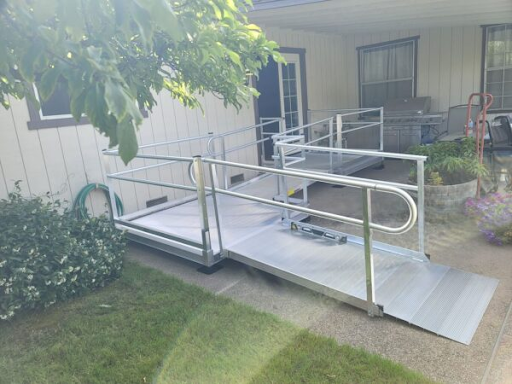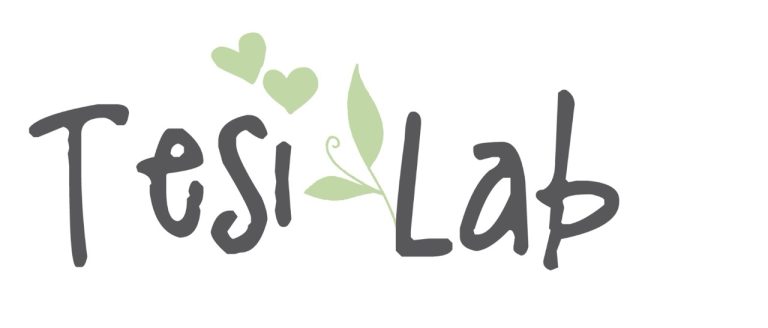Student Social Media Success: Building Your Academic Online Presence for Future Success
The modern educational landscape extends far beyond traditional classrooms and textbooks. Today’s successful students understand that building a thoughtful social media presence can enhance their academic journey, create networking opportunities, and prepare them for future career success. Whether you’re in high school preparing for college, pursuing undergraduate studies, or working toward advanced degrees, your online presence has become an integral part of your educational and professional development.
The Digital Academic Revolution
Social media has transformed how students learn, collaborate, and prepare for their careers. Platforms that once served purely social purposes now offer valuable educational resources, networking opportunities, and professional development tools. Students who strategically leverage these platforms gain access to study communities, academic discussions, mentorship opportunities, and career guidance that can significantly impact their educational success.
Modern employers and graduate schools increasingly review applicants’ social media presence as part of their evaluation process. This reality makes it essential for students to cultivate online profiles that reflect their academic interests, personal growth, and professional potential while maintaining appropriate boundaries between personal and academic content.
Defining Your Academic Identity Online
Discovering Your Educational Focus
Students today have access to more educational opportunities and career paths than ever before. Understanding your academic interests, career goals, and personal values helps establish a coherent online presence that supports your educational journey and future aspirations.
Consider what aspects of your education excite you most. Are you passionate about scientific research, creative writing, social justice, technological innovation, or interdisciplinary studies? Your authentic academic interests should guide your content creation and help you connect with like-minded students and educational communities.
Crafting Your Student Bio
Your social media bio serves as your introduction to academic communities, potential study partners, mentors, and future professional contacts. It should immediately convey your educational focus, academic year, interests, and what type of content followers can expect from your account.
A well-crafted student bio attracts fellow students, educators, and professionals who share your academic interests while positioning you as a serious, engaged learner. For guidance on creating bios that reflect your academic personality and attract the right educational connections, exploring diverse bio development strategies can help you develop an authentic online presence that showcases your educational journey, academic interests, and personal growth while appealing to fellow students and educational professionals.
Your bio might highlight your major or areas of study, academic year, research interests, extracurricular activities, and future goals. Keep it authentic and reflective of your genuine academic pursuits and personal interests.
Content Creation Strategies for Student Success
Academic Achievement Sharing
Share your academic milestones, learning experiences, and educational insights in ways that inspire fellow students while demonstrating your commitment to educational excellence. This might include celebrating completed projects, sharing study insights, highlighting interesting courses, or discussing academic challenges and how you overcame them.
Focus on content that provides value to other students while showcasing your academic growth and engagement with your educational journey.
Study and Learning Content
Create content that helps fellow students while demonstrating your academic engagement. This might include study tips, resource recommendations, course reviews, or insights about effective learning strategies you’ve discovered.
Educational content establishes you as a thoughtful student while contributing positively to academic communities on social media.
Personal Growth and Development
Share your personal development journey as a student, including challenges you’ve faced, skills you’ve developed, and insights you’ve gained through your educational experience. This authentic sharing helps build connections with fellow students facing similar experiences.
Writing Engaging Academic Content
Authentic Academic Voice
Your social media content should reflect your genuine enthusiasm for learning while maintaining appropriate professionalism for your academic and future career goals. Students appreciate authentic, relatable content that reflects shared educational experiences and challenges.
Effective academic social media content often includes personal reflections on learning, discussions of interesting topics from your studies, questions that encourage academic discussion, and insights that other students can relate to and learn from. For developing engaging content that resonates with academic communities, exploring various content creation approaches can provide inspiration for creating posts that drive meaningful educational discussions, build connections with fellow students, and showcase your academic growth and intellectual curiosity.
Discussion-Driven Educational Content
Create posts that encourage academic discussion and peer learning. Ask questions about topics you’re studying, share interesting discoveries from your research, or start conversations about educational challenges and solutions.
These interactive posts help build engaged academic communities around your content while demonstrating your intellectual curiosity and commitment to collaborative learning.
Platform-Specific Strategies for Student Success
LinkedIn for Professional Development
LinkedIn is essential for students preparing for their careers. Use it to share academic achievements, connect with professionals in your field of interest, and demonstrate your growing expertise and professional potential.
Create content that showcases your academic projects, internship experiences, and professional development activities while building connections with industry professionals and fellow students.
Instagram for Academic Lifestyle
Instagram allows students to visually share their academic journey through study setups, campus life, project showcases, and educational experiences. Use Stories to share daily study routines, campus events, and real-time academic updates.
Academic hashtags can help you connect with fellow students, study communities, and educational accounts that align with your interests and goals.
Twitter for Academic Discussions
Twitter serves as a platform for real-time academic discussions, following educational news, and connecting with researchers, professors, and academic communities in your field of interest.
Building Your Student Community
Networking and Academic Connections
Use social media to build meaningful connections with fellow students, educators, and professionals in your field. These relationships can lead to study partnerships, mentorship opportunities, research collaborations, and future career connections.
Engage authentically with other students’ content, participate in educational discussions, and contribute meaningfully to academic communities online.
Study Groups and Collaborative Learning
Social media can facilitate study group formation, collaborative learning projects, and peer support networks. Use these platforms to find study partners, share resources, and create supportive academic communities.
Organizing Your Academic Journey
Academic Planning and Goal Setting
Successful students maintain organized systems for tracking their academic progress, managing deadlines, planning future courses, and documenting their educational journey. This organization becomes increasingly important as academic responsibilities grow and career preparation intensifies.
Consider maintaining detailed records of your coursework, academic achievements, research interests, networking connections, and career development activities. Implementing effective organizational and planning systems can help you track academic progress, manage complex schedules, plan for future educational and career opportunities, and maintain comprehensive documentation of your student journey while ensuring you never miss important deadlines or opportunities for academic and professional growth.
Digital Portfolio Development
Use social media as part of building a comprehensive digital portfolio that showcases your academic work, personal projects, and professional development. This portfolio becomes valuable for college applications, job searches, and graduate school admissions.
Privacy and Professional Considerations
Balancing Personal and Academic Content
Maintain appropriate boundaries between personal and academic content on your social media platforms. Consider creating separate accounts for personal use and academic/professional content, or carefully curating your content to reflect both your personality and your academic seriousness.
Future-Proofing Your Online Presence
Remember that your social media content may be reviewed by future employers, graduate schools, or professional contacts. Ensure your online presence reflects the person you want to be professionally while remaining authentic to your personal values and interests.
Academic Integrity and Digital Citizenship
Ethical Social Media Use
Maintain academic integrity in all your social media activities. This includes properly crediting sources, respecting intellectual property, and following your institution’s guidelines about sharing academic work online.
Positive Contribution to Academic Communities
Focus on contributing positively to online academic communities. Share resources, support fellow students, and engage in constructive discussions that enhance the educational experience for everyone involved.
Career Preparation Through Social Media
Industry Exploration
Use social media to explore potential career paths by following professionals in fields that interest you, participating in industry discussions, and learning about different career opportunities within your areas of study.
Professional Skill Development
Share your development of professional skills through coursework, internships, projects, and extracurricular activities. This demonstrates your growing competence and commitment to professional development.
Mental Health and Well-being
Healthy Social Media Habits
Maintain healthy boundaries with social media use to support your academic success and personal well-being. Use these platforms to enhance your educational experience without allowing them to become sources of stress or distraction.
Support Networks
Build supportive online communities that contribute positively to your academic journey and personal growth. Seek out accounts and communities that inspire, motivate, and support your educational goals.
Future Trends in Student Social Media
Emerging Educational Technologies
Stay informed about new educational technologies and platforms that might enhance your learning experience and career preparation. This includes developments in online learning, virtual collaboration tools, and professional networking platforms.
Global Academic Communities
Social media enables connections with students and educators worldwide, creating opportunities for international collaboration, cultural exchange, and global perspective development that enhance your educational experience.
Long-term Success Strategies
Consistency and Growth
Maintain consistency in your academic social media presence while allowing room for growth and evolution as your interests and goals develop throughout your educational journey.
Professional Transition Preparation
Begin preparing for the transition from student to professional by gradually shifting your social media presence to reflect your growing expertise and career readiness while maintaining your authentic voice and values.
Conclusion
Building a successful academic social media presence requires thoughtful balance between authenticity, professionalism, and educational engagement. Your online presence should support your academic goals while preparing you for future career success and personal growth.
Remember that your social media activities are part of your broader educational journey. Use these platforms to enhance your learning, build meaningful connections, and prepare for your future while staying true to your values and academic interests.
The intersection of education and social media continues evolving with new opportunities for learning, networking, and professional development. Students who thoughtfully engage with these platforms while maintaining focus on their academic goals position themselves for success in an increasingly connected and digital world.
Start building your academic social media presence today, focusing on authenticity, educational value, and meaningful connections that support your current studies and future aspirations. Your commitment to learning, combined with strategic social media use, can enhance your educational experience and prepare you for success in whatever path you choose to pursue.







